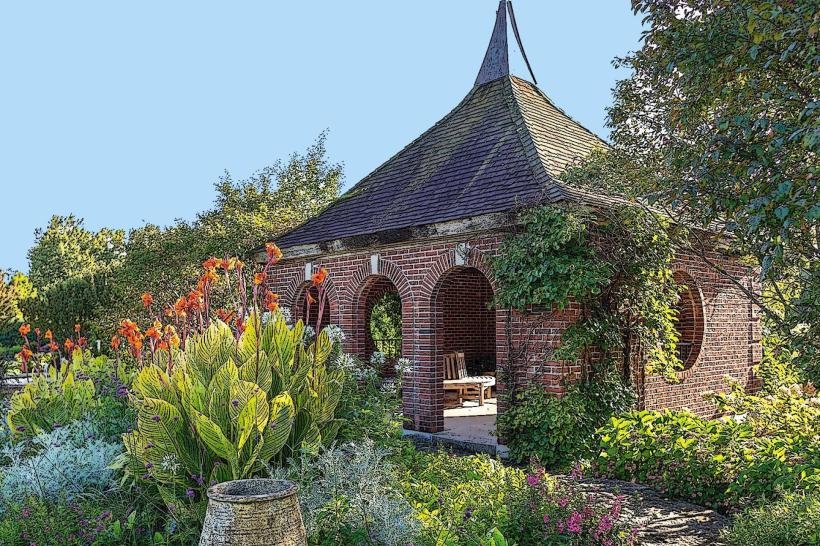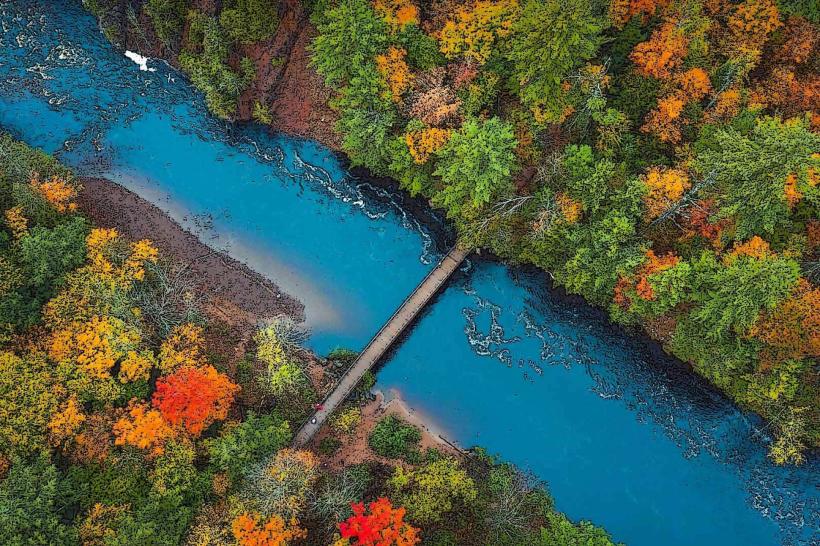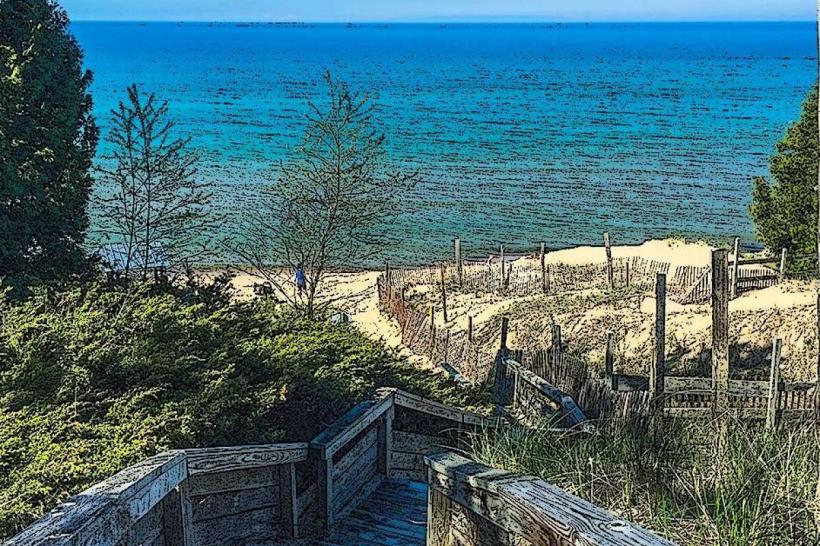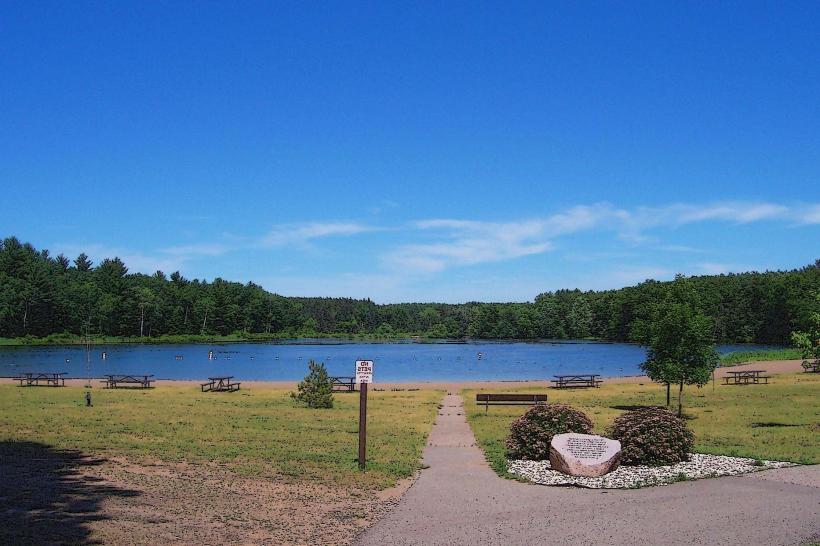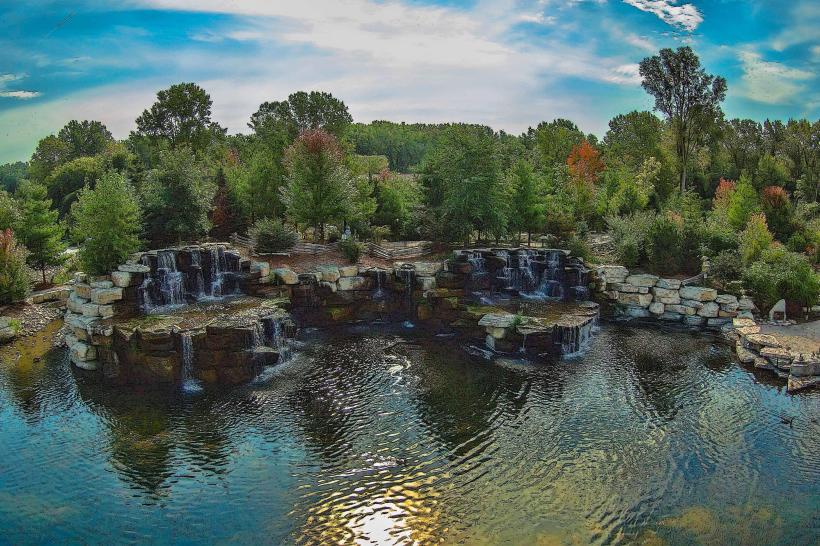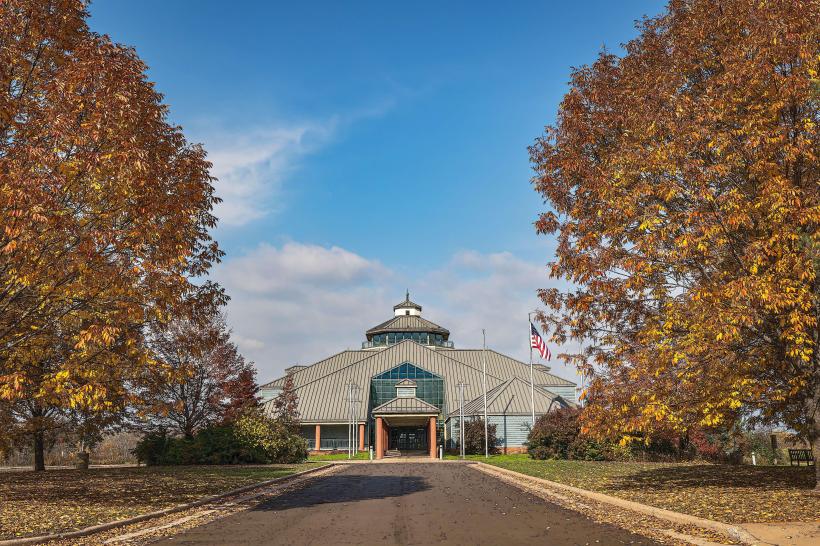Information
Landmark: Ridges SanctuaryCity: Green Bay
Country: USA Wisconsin
Continent: North America
Ridges Sanctuary, Green Bay, USA Wisconsin, North America
The Ridges Sanctuary – Detailed Overview
Located in Baileys Harbor, on the eastern shore of Wisconsin’s Door County Peninsula, The Ridges Sanctuary is the state’s oldest private nature preserve and one of its most biologically diverse landscapes. Founded in 1937, it was created to protect a rare ecological system that developed over centuries of natural shoreline changes along Lake Michigan. Today, the sanctuary covers nearly 1,600 acres of protected ridges, swales, forests, wetlands, and shoreline, and serves as a nationally significant model of conservation, education, and stewardship.
Landscape and Geological Significance
The defining natural feature of The Ridges Sanctuary is its unique “ridge-and-swale” topography-a sequence of low sandy ridges alternating with wetter depressions, all formed over the past 1,200 years by the gradual retreat of Lake Michigan’s shoreline. Each ridge represents a former beachline, deposited as lake levels changed over time. Between them, swales developed as wetland ecosystems.
The ridges are relatively dry, elevated sandy areas that support boreal forests dominated by balsam fir, paper birch, white pine, and northern white cedar. The swales-low, wetter zones-contain fens, sedge meadows, sphagnum bogs, and orchid-rich wetland habitat. This ridge-and-swale system creates a mosaic of over 30 distinct plant communities within a compact area, offering an extraordinary level of biodiversity rarely found in the Great Lakes region.
Because of its scientific value and pristine character, The Ridges Sanctuary has received national and international recognition:
Designated a National Natural Landmark
Classified as a State Natural Area by Wisconsin DNR
Identified as an Important Bird Area by Audubon
Listed as a Ramsar Wetland of International Importance
Flora and Fauna
Botanically, the sanctuary is rich and well-documented. More than 475 plant species have been identified within its boundaries, including 25 species of native orchids. Some of the most sought-after include the ram’s-head lady’s slipper, showy lady’s slipper, and the rare grass pink orchid. The Ridges is also home to the federally endangered dwarf lake iris and Hine’s emerald dragonfly, both dependent on the unique wetland microclimates found in the swales.
Birdlife is equally impressive. Over 60 species nest in the sanctuary, and many more pass through during migration seasons, including warblers, thrushes, sandhill cranes, woodcocks, and red-shouldered hawks. Wetland areas are rich in amphibians such as green frogs, spring peepers, and salamanders. Invertebrate diversity is also high, with notable dragonfly and butterfly populations, many of which are sensitive to habitat quality and water purity.
Cook-Albert Fuller Nature Center
Built in 2015, the Cook-Albert Fuller Nature Center functions as the primary visitor orientation site and educational hub. It is LEED Gold-certified for environmental design and features solar power, rain gardens, and native landscaping. Inside, the center contains detailed exhibits on the formation of the ridges, wetland ecology, orchid diversity, and local conservation history. Visitors can explore interactive maps, microscopes, and habitat displays, and obtain trail maps, seasonal guides, and activity schedules.
This center also hosts educational programs, lectures, naturalist training, and community events throughout the year, providing a vital link between the sanctuary’s scientific mission and public outreach.
Trail System
The Ridges features over 5 miles of maintained trails designed to highlight the full range of habitats and historical features within the preserve. Trails are open year-round from dawn to dusk.
Key trails include:
Hidden Brook Boardwalk – A fully accessible, 1,800-foot elevated trail that winds through a boreal forest of white spruce and fir. The boardwalk includes interpretive panels and resting benches, making it ideal for visitors with mobility limitations or families with young children.
Range Light Boardwalk – This trail leads through low wetlands to the historic Baileys Harbor Range Lights, two lighthouses constructed in the 1860s for maritime navigation. The front and rear range lights helped ships safely align with the harbor entry.
Family Discovery Trail – A loop designed with young visitors in mind. Interpretive stops introduce themes like forest succession, wetland cycles, and animal tracks.
Appel’s Bluff and Logan Creek Trails – Located on satellite properties managed by The Ridges, these trails explore upland woods and creekside habitats, offering longer and more rugged hiking options away from the main sanctuary.
In winter, snowshoeing is permitted, and snowshoe rentals are available from the nature center.
History and Preservation
The sanctuary was founded in 1937 by Albert Fuller, a botanist from the Milwaukee Public Museum, along with local conservationists concerned about plans to develop the land into a lakeside resort. Their early action protected one of Wisconsin’s last remaining wild stretches of Lake Michigan shoreline.
The Ridges Sanctuary was the first land trust established in Wisconsin, laying the groundwork for future private conservation initiatives throughout the state. Since its founding, it has expanded in acreage and influence, managing multiple tracts, conducting long-term ecological monitoring, and training future environmental leaders.
Baileys Harbor Range Lights
One of the sanctuary’s most unique historical features is the pair of range lights located near its northern end. Constructed in 1869, these lights were used in tandem: ships entering Baileys Harbor would align the front and rear lights to navigate safely through the narrow channel.
The buildings have been preserved and are listed on the National Register of Historic Places. Seasonal guided tours are offered, which include entry to the keeper’s house and access to the lights themselves.
Education and Public Programming
The Ridges Sanctuary maintains a strong focus on environmental education, offering year-round programs for adults, families, school groups, and naturalists. These include:
Guided nature walks and orchid hikes
Full moon and twilight walks
Seasonal discovery days for children and families
Volunteer naturalist and citizen science training
Field classes in botany, birding, and conservation biology
Many programs take place on-site, while others are conducted in partnership with Door County schools, libraries, and community centers.
Accessibility and Visitor Information
Location: 8166 State Highway 57, Baileys Harbor, WI 54202
Hours: Trails are open year-round from dawn to dusk. The nature center has seasonal hours, typically open daily from spring through fall.
Parking: Free and available near the nature center and trailheads.
Accessibility: The Hidden Brook Boardwalk is fully accessible. Other trails vary in terrain but are well-marked.
Nearest Major City
The closest major city to The Ridges Sanctuary is Green Bay, Wisconsin, located approximately 75 miles (120 kilometers) to the south. Green Bay offers a regional airport, major hospitals, hotels, and other full services. Travel time from Milwaukee is about three hours by car, and from Chicago roughly four and a half hours.
Summary
The Ridges Sanctuary stands out as one of Wisconsin’s most ecologically valuable and visually unique natural preserves. Its ridge-and-swale topography, rich orchid populations, ancient boreal forest, and historic lighthouses combine to form a landscape of exceptional beauty and scientific importance. Whether walking among wildflowers in spring, birdwatching in fall, or snowshoeing through a quiet winter forest, The Ridges offers a serene and meaningful experience for nature lovers, families, and conservation-minded visitors.


